Search
Did you mean: Dangun?
Remove Ads
Advertisement
Summary 
Loading AI-generated summary based on World History Encyclopedia articles ...
Search Results
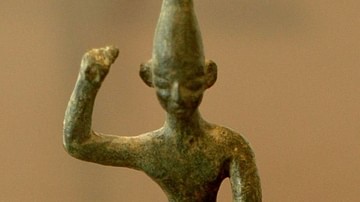
Definition
Baal
Baal (also given as Ba'al) is a Canaanite-Phoenician god of fertility and weather, specifically rainstorms. The name was also used as a title, however, meaning "Lord" and was applied to a number of different deities throughout the ancient...

Definition
Philistines
The Philistines populated the coastal regions of Canaan from the 12th century BCE to their disappearance in 604 BCE. The word "Philistine" derives from the Hebrew ha-Plištim for the combination of several tribes of Syria and Judea with the...
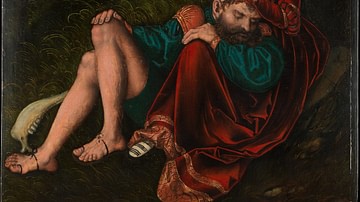
Definition
Samson
Samson was one of the last judges in the Hebrew Book of Judges who arose as a leader of the Jews when they settled in Canaan. He was a Nazirite, known for his incredible strength, the secret of which was discovered by Delilah who betrayed...
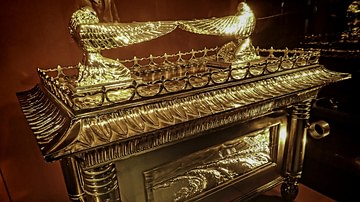
Definition
Ark of the Covenant
The Ark of the Covenant refers to the box-like container that held the tablets of the Law received by Moses on Mount Sinai. Tradition claimed that it contained two stone tablets, carved by God, listing the first ten commandments given to...
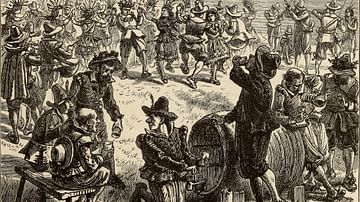
Definition
Merrymount Colony
Merrymount Colony (1624-1630 CE) was a settlement first established in New England as Mount Wollaston in 1624 CE but renamed Mount Ma-re (referred to as Merrymount) in 1626 CE by the lawyer, writer, and colonist Thomas Morton (l. c. 1579-1647...
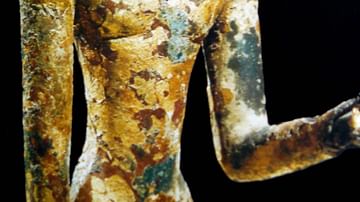
Definition
Phoenician Religion
The Phoenician Religion, as in many other ancient cultures, was an inseparable part of everyday life. Gods such as Baal, Astarte, and Melqart had temples built in their name, offerings and sacrifices were regularly made to them, royalty performed...
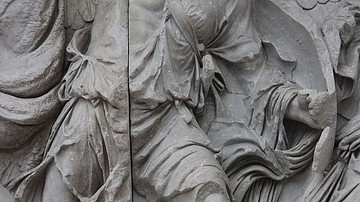
Definition
Uranus
Uranus (also spelt Ouranos) is the personification of heaven and the sky in Greek mythology. His Roman counterpart is Caelus. Gaia (Earth) gave birth to Uranus and chose him to be her equal. She lay with him, resulting in the birth of the...
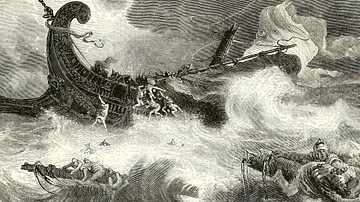
Definition
Yamm
Yamm (from the Semitic word yam for 'sea', also known as Yam and Yam-Nahar) was the god of the sea and storm in the pantheon of the Canaanite-Phoenicians. Depicted consistently as tyrannical, angry, violent, and harsh, Yamm was the brother...

Article
The Mesopotamian Pantheon
The gods of the Mesopotamian region were not uniform in name, power, provenance or status in the hierarchy. Mesopotamian culture varied from region to region and, because of this, Marduk should not be regarded as King of the Gods in the same...